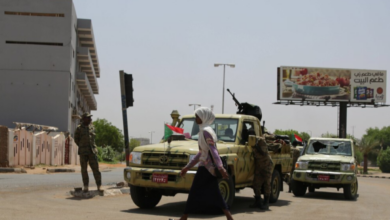Children in Ukraine are facing their fourth school year disrupted by the war with Russia and earlier the COVID-19 pandemic .

Photo: Freepik
EFE
Listen to this article
Leer en español: Pérdida de aprendizaje: Así viven la guerra los niños de Ucrania
These two events have generated a "generalized learning loss" in children in Ukraine with a direct effect on their knowledge of the Ukrainian language, UNICEF warned Tuesday.
According to a statement from the UN agency for children, attacks on educational infrastructure in Ukraine and low schooling in countries hosting Ukrainian refugees have generated learning problems for the 6.7 million Ukrainian minors with ages between 3 and 18 years.
UNICEF Regional Director for Europe and Central Asia Regina de Dominicis, who recently visited Ukraine, said the attacks on schools in the country have left children "deeply distressed and without safe spaces to learn" , which also affects to their retention of what they have learned in normal times.
The education of children in Ukraine in figures
According to the latest surveys conducted by the agency, 57% of teachers reported a deterioration in their students' abilities related to the Ukrainian language and 45% to mathematics, and 52% reported a reduction in related abilities. with foreign languages.
According to the most recent schooling data, in Ukraine only a third of primary and secondary students are receiving classes completely in person; another third follow a mixed model with face-to-face and online classes, and the remaining third do so completely online.
The agency notes that online education is a short-term solution, but it cannot replace in-person classes, which are essential for social development and fundamental learning.
Read also: Infographic: A Year of the War in Ukraine
As for the youngest, two thirds of preschool-age children are not attending these centers, a situation that is aggravated in the areas on the front line of the conflict, where 75% of parents report that they do not send their children to preschools.
More than half of school-age refugee children are not enrolled in the national education systems of seven host countries, and those who would go to pre-school and secondary school are the most likely to miss out due to language barriers or to the saturation of the systems, indicates the statement.
It also notes that refugee children not enrolled in local schools are likely attempting to study online following the Ukrainian curriculum or other distance learning platforms, although some may have dropped out entirely.
UNICEF pointed out that in times of crisis and war, schools are more than places of learning: they offer safety and routine to children who have suffered loss, displacement and violence; the opportunity to make friends and receive help from teachers; and access vaccines, food and psychological support services.
The agency claimed that it works with governments and NGOs on the ground in Ukraine and in host countries to improve access to education, while it is helping the Ukrainian government, through school rehabilitation and remedial classes, to provide support some 300,000 children at risk of losing the next school year, among other things.




